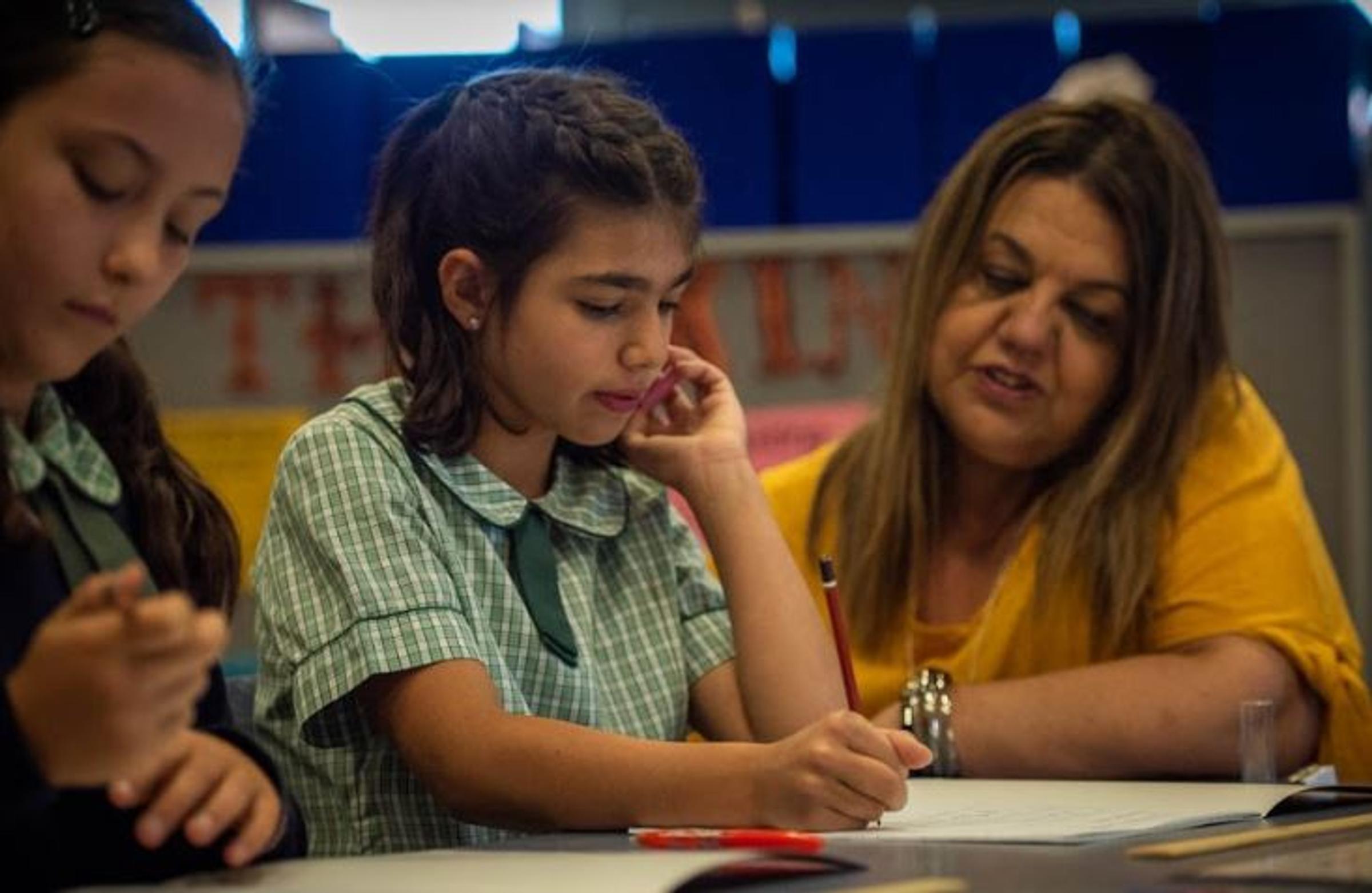Student Wellbeing
Student Wellbeing encompasses the following areas: Student Engagement, Student Connectedness, Classroom Climates, Inclusion and Prevention to Intervention

Student Wellbeing
Student Wellbeing encompasses the following areas: Student Engagement, Student Connectedness, Classroom Climates, Inclusion and Prevention to Intervention
In many states of Australia, schooling has again been disrupted this year due to the various restrictions brought about by the COVID-19 pandemic. And many people now have children returning to on-site learning.
Professor Brett McDermott, a child and adolescent psychiatrist, provides advice for parents and carers on how to best support their child through the transition, with a focus on those caring for primary school-aged children.
As a parent, it’s natural to feel apprehensive about how well your child is going to transition after spending so much time at home. Many children will have enjoyed remote learning, and some may feel anxious about being back in school. McDermott says it’s important to keep in mind that it’s natural for children to be unsettled by the thought of another big change.
“Feelings of anxiety and sadness are completely normal right now. They’ve recently had all this time at home with mum and dad (or caregivers), so it’s tough for that to come to an end,” says McDermott.
Avoid oversharing with your children
To help lower your child’s feelings of anxiety around being back at school, McDermott says “parents need to try and remember that anxiety can be contagious. Understandably, parental anxiety may still be running high, but children need to be shielded from their parent’s worries as much as possible. So, save adult conversations for adult time.”
According to McDermott, children aged between 10-13 years-old are the most anxious after things such as a natural disaster, primarily because they tend to be – albeit unwittingly – exposed to too much information.
“Little ones tend to be protected from things as parents will avoid talking about important issues in front of them. By those middle years this often changes. Not only do they tend to be more exposed to the news, social media, and adults chatting more openly in their presence, they also have very good imaginations, so they can envisage bad outcomes.”
Head to our Healthy Families website for tips on how to talk to children about traumatic news events.
What you can do to help
Fortunately, there’s plenty parents and carers can do to help their children feel less anxious about being back at school.
Monitor current requirements. Make sure to stay well across the differing requirements and timelines of your state government and also your child's school. Understanding what's expected (for instance, are they required to wear masks?) will help you prepare and also avoid any potentially unsettling surprises.
Discuss things openly. McDermott suggests openly discussing any issues your child may be experiencing during this transition period, including why and how things might feel different to normal. In doing so, he advises you to be upbeat but matter of fact.
“Getting across that it’s business as usual and modelling this with positive words and behaviour will help set the tone,” says McDermott.
Stick to a steady routine. Sticking to a reliable, steady daily routine can help with feelings of anxiety. McDermott recommends starting each school day the same way, including setting the alarm, eating breakfast together, dressing in school uniform or doing whatever you would normally do.
Use incentives and highlight the positives of being back in school. For example, you might organise for a school friend to come by in the morning on the first day back so they can go in together, or arrange a playdate after school with their best friend/s.
Tell them you’re confident in them. Remind your child that they’ve already shown great resilience and adaptability during what has been a challenging time, and that you have full confidence in their ability to do it again.
Regularly check in with your child. Ask them how they’re feeling, what they’re enjoying, and what might not be working so well. Help your child find solutions to any issues they might be having.
Supporting your child in becoming confident in problem-solving will help them build resilience.
Schools and educators are there to help
Remember that the school and its educators are there to support your child.
“Linking up closely with your child’s school and talking to their teacher is a great idea. They may also have a school counsellor or psychologist, as well as many other wonderful resources,” he says, adding that if your child needs further help to overcome their anxiety, to contact your GP.
To assist with their confidence, ensure your child knows who to go to at school if they need support, and encourage them to recognise and name their feelings.
Adjusting to COVID-normal may be particularly challenging if your child has an existing mental health condition. Staying at home may have been a safe bubble for them, and they may, understandably, feel very reluctant to leave it. In this case, McDermott suggests paying close attention to them during even after the initial transition back to school.
“Whether they need to see their counsellor or psychologist regularly during this time, or go back and talk to their GP to establish next steps, the key thing is to avoid a relapse or the worsening of an existing condition.”
This content is proudly funded by one of Beyond Blue’s Major Partners, Future Generation Global Investment Company.